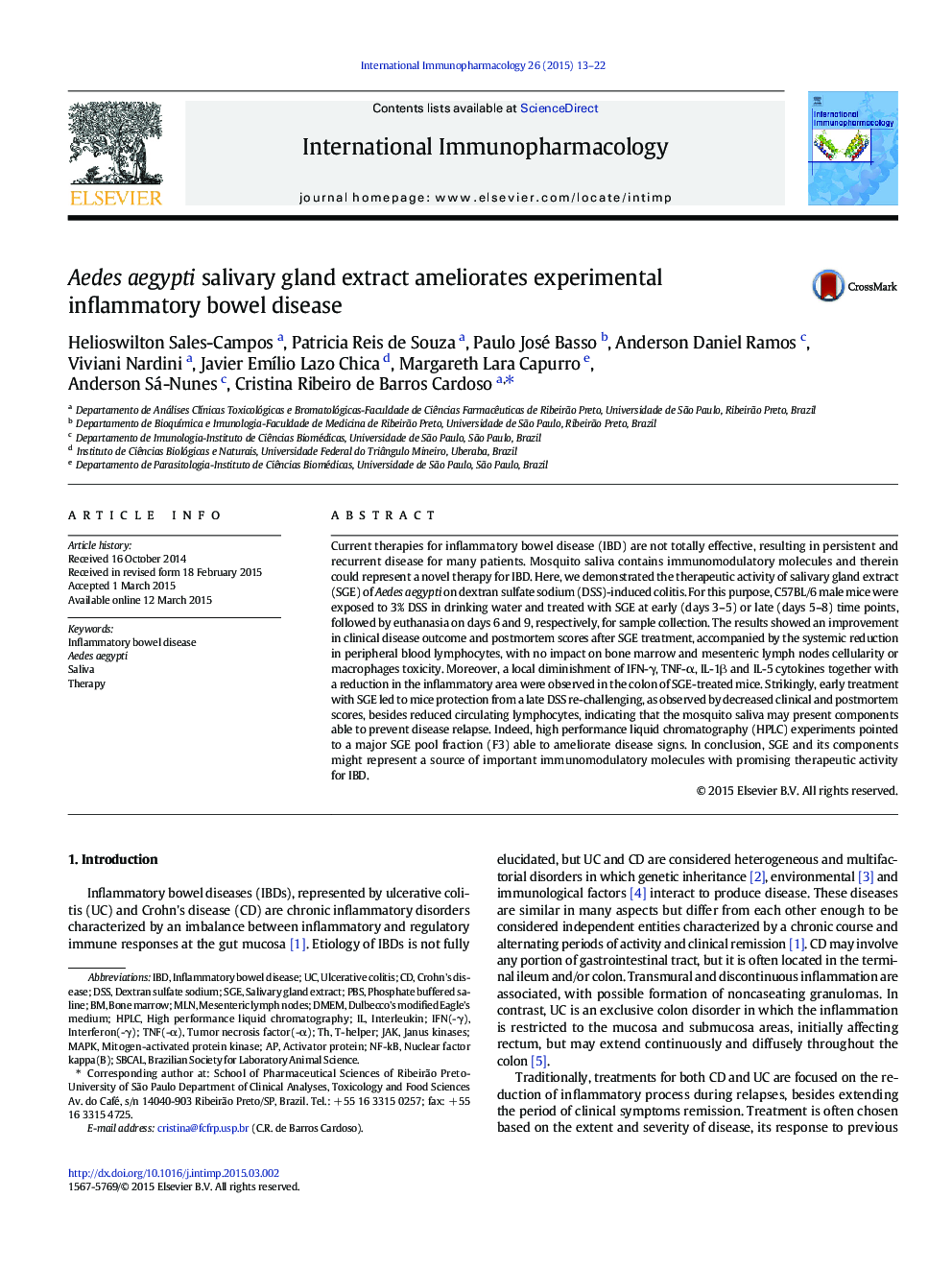| کد مقاله | کد نشریه | سال انتشار | مقاله انگلیسی | نسخه تمام متن |
|---|---|---|---|---|
| 2540732 | 1122605 | 2015 | 10 صفحه PDF | دانلود رایگان |

• SGE treatment improved clinical disease outcome and postmortem scores.
• Treatment was not toxic for different cell lineages.
• SGE-treated mice displayed reduced levels of IFN-γ, TNF-α, IL-1β and IL-5 cytokines together with a decrease in the inflammatory area in the colon.
• Aedes aegypti saliva may present components able to prevent disease relapse
Current therapies for inflammatory bowel disease (IBD) are not totally effective, resulting in persistent and recurrent disease for many patients. Mosquito saliva contains immunomodulatory molecules and therein could represent a novel therapy for IBD. Here, we demonstrated the therapeutic activity of salivary gland extract (SGE) of Aedes aegypti on dextran sulfate sodium (DSS)-induced colitis. For this purpose, C57BL/6 male mice were exposed to 3% DSS in drinking water and treated with SGE at early (days 3–5) or late (days 5–8) time points, followed by euthanasia on days 6 and 9, respectively, for sample collection. The results showed an improvement in clinical disease outcome and postmortem scores after SGE treatment, accompanied by the systemic reduction in peripheral blood lymphocytes, with no impact on bone marrow and mesenteric lymph nodes cellularity or macrophages toxicity. Moreover, a local diminishment of IFN-γ, TNF-α, IL-1β and IL-5 cytokines together with a reduction in the inflammatory area were observed in the colon of SGE-treated mice. Strikingly, early treatment with SGE led to mice protection from a late DSS re-challenging, as observed by decreased clinical and postmortem scores, besides reduced circulating lymphocytes, indicating that the mosquito saliva may present components able to prevent disease relapse. Indeed, high performance liquid chromatography (HPLC) experiments pointed to a major SGE pool fraction (F3) able to ameliorate disease signs. In conclusion, SGE and its components might represent a source of important immunomodulatory molecules with promising therapeutic activity for IBD.
Journal: International Immunopharmacology - Volume 26, Issue 1, May 2015, Pages 13–22